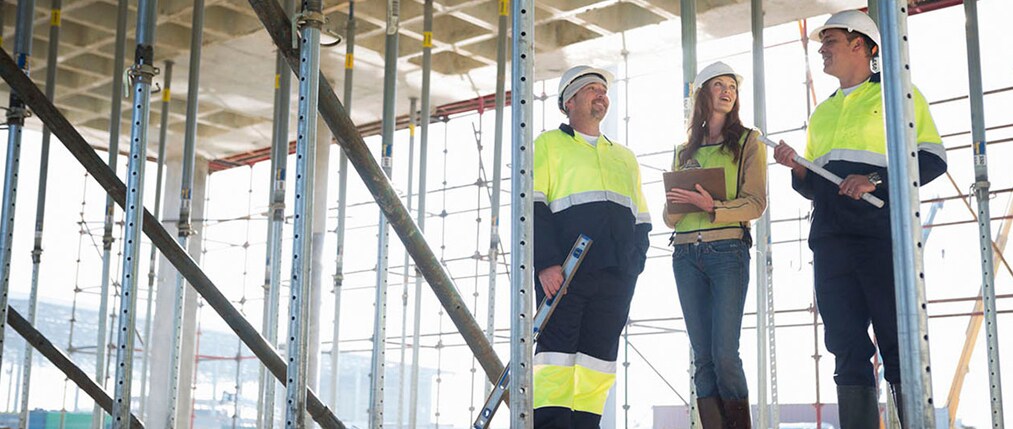Managing payments and cash flow is vital in any industry, but construction offers unique challenges that many others don't regularly face. If your business is involved with construction, you are likely familiar with both juggling bills and waiting for others to pay your invoices well past the due date.
With modern systems and forward-thinking partners, you can ease the pressures of cash flow working with customers and suppliers in Canada, the United States and elsewhere around the world.
Accelerating payments in the construction industry
Whenever a piece of equipment breaks down on the job site, it can grind progress to a frustrating and costly halt. Particularly when dealing with short fair-weather construction seasons, delays can jeopardize the financial success of a project. Just as you want to keep your bulldozers, excavators and other equipment running smoothly, it is important to keep your cash running like a well-oiled machine. In an industry notorious for lengthy payment periods, managing working capital and cash balances is vital for a healthy company.
According to the recent "Challenges to cash flow in the construction industry" report from American Express and EY, a culture resistant to change is a major roadblock in unlocking an estimated CAD $5 to $10 billion from construction industry balance sheets.
Putting the tools and culture in place to improve cash cycles
While there is no universal, easy remedy for all industry firms to implement, construction companies do have many resources available to speed up the cash cycle. Those start with your workers and include vendors, customers and other partners.
In the same report, Paul Raboud, director of the board at Bird Construction and past chair of the Ontario General Contractors Association, explained that every relationship should expect on-time collections. "It's not just getting the job done on time; [the project manager is] also responsible for collections," said Raboud.
Legislative changes are in the works that could potentially require faster payments; even so, companies should work effortlessly to reduce their days sales outstanding (DSO). As Raboud pointed out, every member of the team can make a difference.
"It's amazing how many payment delays could be resolved simply by reading what the contract says and submitting the proper pieces of paperwork."
Modernizing payments in Canadian construction
The study also reveals that just 28 percent of construction executives have a digital strategy in place despite 98 percent believing such a strategy to be important for long-term success.
In any industry, a digital strategy must go beyond a website and basic online marketing. For cash flow strategy, moving to a unified enterprise resource management system may help you automate the entire purchase order, invoice and payment process, among other business tasks.
If that sounds too daunting, a partnership with a third-party payment processor like American Express can speed up and automate the accounts payable process with a range of helpful features. Equipment, supplies, financing, fuel, insurance and other costs can be a lot to manage. When properly automated, processing costs go down while accuracy and speed go up.
Preparing for the future of construction cash flow management
This is an industry poised for change, and pending legislation may turn payment upgrades from a convenience to a requirement. Ensure you have a 12- to 18-month plan, and empower your finance team to pivot and upgrade.
Upcoming legislative payment rules require your culture and your systems to embrace a new, high-speed world of payments. When the entire industry gets on board, everyone—from solo contractors to construction powerhouses—can emerge as big winners.
This article is intended for general informational purposes only and does not constitute legal advice or an opinion on any issue. It should not be regarded as comprehensive or a substitute for professional advice.



